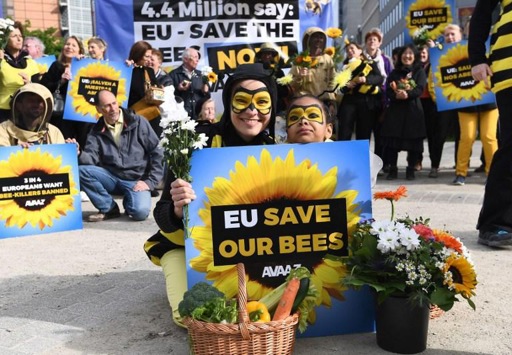The European Commission has adopted new standards for the presence in food of residues of two neonicotinoids, pesticides seen as the cause of the major decline in the bee population.
The new rules will reduce the maximum residue levels of the two neonicotinoids – clothianidin and thiamethoxam – to the lowest level that can be measured with modern technology, the Commission said in a press release.
The new standards will apply to all food and feed in Europe, including those imported from third countries. To give importers time to adapt, the standards will not apply to imports until 2026.
The two challenged neonicotinoids, whose use is basically banned in Europe, can protect beets from jaundice. That disease is transmitted by green aphids, which is why the pesticides attack the insects’ nervous systems, but that also makes them particularly harmful to sprayers.
Specifically, the pesticides affect the orientation ability of bees, and harms their sperm.
In the European Union, the use of three neonicotinoids (clothianidin, thiamethoxam and imidacloprid) in open fields has already been banned since 2018. Last month, the European Court of Justice declared illegal the exemptions that some 10 member states had granted to beet growers, allowing them to continue using the products.
The case primarily concerned Belgium, but the scope of the ruling goes beyond the country.

